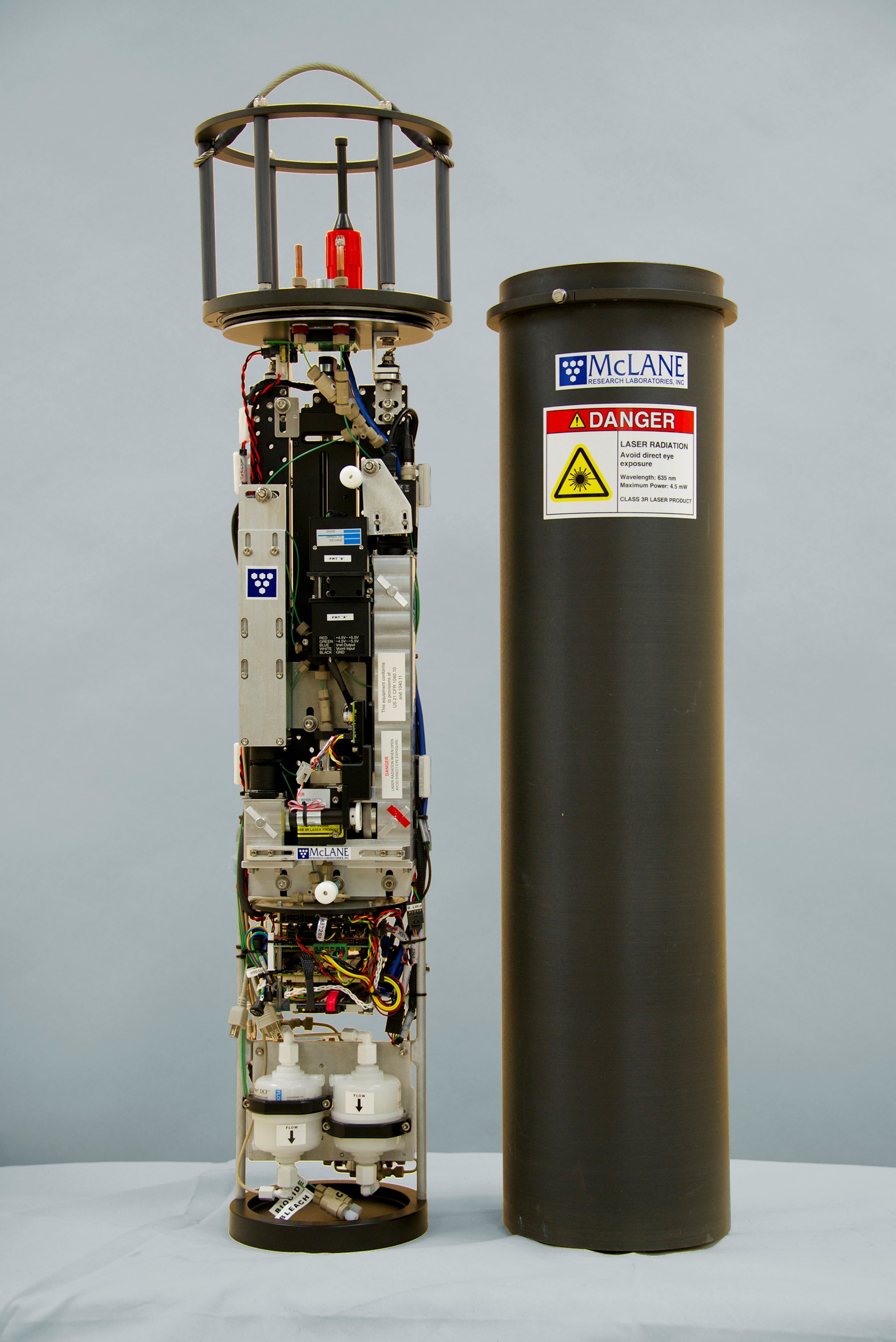The Imaging FlowCytobot (IFCB) is an in-situ automated submersible imaging flow cytometer that generates images of particles in-flow taken from the aquatic environment.
The IFCB uses a combination of flow cytometric and video technology to capture high resolution images of suspended particles. Laser- induced fluorescence and light scattering from individual particles are measured and used to trigger targeted image acquisition; the optical and image data are then transmitted to shore in real time.Collected images during continuous monitoring can be processed externally with automated image classification software. Images can be classified to the genus or even species level with demonstrated accuracy comparable to that of human experts.
IFCB generates high resolution (~2.7 pixels/micron) images of suspended particles in the size range <10 to 150 μm (such as diatoms and dinoflagellates). The instrument continuously samples at a rate of 15ml of sea water per hour. Depending on the target population the IFCB can generate on the order of 30,000 high resolution images per hour.
Overview
| DEPLOYMENT: | Typical deployment 6 m (longer possible) |
| DEPTH: | Maximum depth of 40 m |
| TEMPERATURE RATING: | Temperature 0 to 45 °C |
| IMAGE RATE: | 30,000 images per hour (depending on target) |
| RESOLUTION: | High resolution (~2.7 pixels/micron) |
| POWER: | Requires 18-36 VDC external power source |
| POWER CONSUMPTION: | Consumes 35 W (continuous sampling) |
| SCHEDULE: | Automated or interactive system |
For further information, download the IFCB Data Sheet or Contact us.
See the IFCB Dashboards page for examples of publicly available data dashboards.
Note: McLane utilizes various metals and engineering plastics in the fabrication of our instruments. These materials are usually suitable for long-term oceanographic deployments. However, it is the customer’s responsibility to determine material suitability for a specific operating environment. Review McLane statement on materials used in frames, fixtures, and housings
Read the ECO Magazine article about a dual ESP and IFCB deployment.
Read the ECO Magazine IFCB feature article about IFCB’s role in the operational response at an aquaculture farm.
Support:
Visit our Library for a complete selection of IFCB documentation and other product resources.
McLane offers a hands-on course in IFCB operation. IFCB owners and prospective owners are invited to spend one to two days at our facility.

